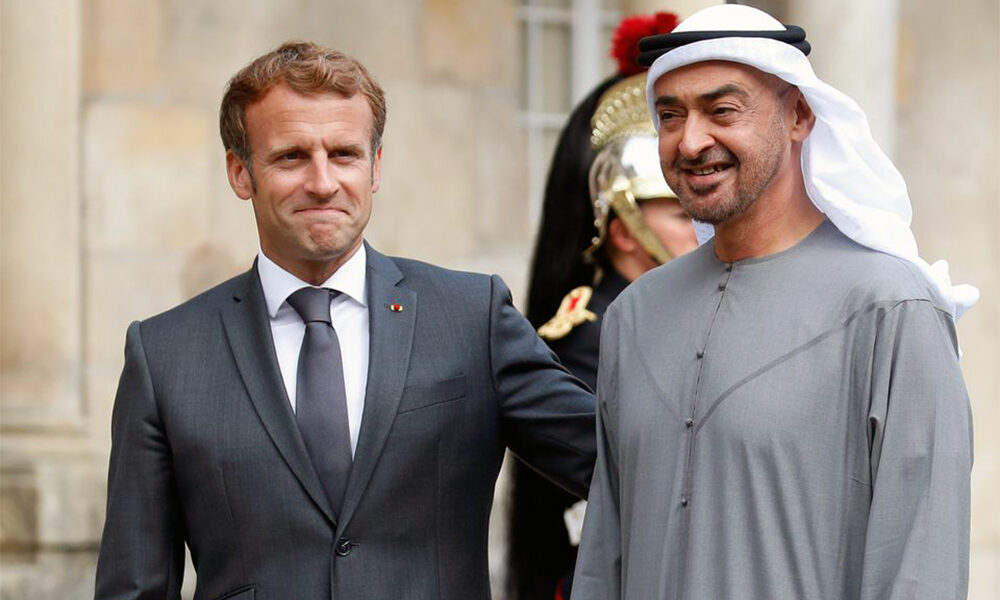Speaking in an interview with the website of the Strategic Council on Foreign Relations, Abolghassem Delfi referred to France’s decision to provide military support to the UAE, especially to protect its airspace against any invasion, noting that France has a clear military presence in the Persian Gulf.
He pointed to the widespread relations between France and the UAE in various fields, especially military, economic and cultural relations, and stressing the significant interests of that country in the UAE, added: The Louvre Museum has opened one of its branches in the UAE and the Emiratis have spent huge sums of money in the field of culture and communication in France. Meanwhile, French companies are also very active in the UAE, and they consider such affiliations as an excuse to defend the UAE.
The expert on international affairs stressed: In the past two decades, the French presence in the Middle East has somewhat diminished, and we were witness to a decrease in their influence in Syria and, to a lesser extent, in Lebanon; but under the current situation, Paris which has very important economic, cultural, military and weaponry interests in the region, it intends to increase its presence and influence.
Saying that France has significantly increased its arms sales and military cooperation in the Persian Gulf region in recent years, Delfi referred to Paris support for Riyadh and the unequal war coalition against Yemen, despite numerous international pressures and said: Following escalation of Houthi attacks on Saudi Arabia and the UAE, the French held talks with Saudi Arabia and in fact, they found a good excuse for strengthening presence of their fighters and air defenses in those countries.
He noted that French Foreign Minister Jean-Yves Le Drian, who was formerly war minister of France, is known as the founder of a new chapter in France’s extensive military relations and arms sales to the Middle East, including Egypt, Saudi Arabia, the United Arab Emirates, Qatar and Kuwait. He is primarily known as a veteran member of the French Socialist Party and a supporter and close ally of the Arab factions. The current French defense minister is still following the same path.
Explaining the reasons for the desire of the UAE and some Arab countries to pave the way for the presence of transregional countries in the Persian Gulf, the former Iranian diplomat in France stressed the importance of Iran’s relations with regional countries despite all the sabotage and misdeeds of Abu Dhabi and Riyadh in regional and neighborhood relations against Iran and stated that all the parties should be vigilant to maintain security and tranquility in the region.
He continued: Iran has relatively effective relations with the UAE, especially in the trade sector, and in this period, it has emphasized its relations with its neighbors. At the same time, we must pay attention to the evil deeds of the Zionist regime in order to disrupt our relations with our neighbors, and resolve the problems within the framework of dialogue and exchange of views.
Regarding the consequences of French military support for the UAE on the regional behavior of the country while taking into account some withdrawals from Yemen, he said: The war conditions and insecurity for the UAE are definitely a great loss for that country. Of course, the UAE also has miscalculations in its regional behavior, and there are those who commit mischief in that country and cause problems for the UAE; at the same time, it should be noted that French support for the UAE is not a new issue and we have been witness to it before the Houthi attacks.
Delphi reiterated the UAE’s decision to withdraw from Yemen despite French military support, stressing: In any case, the UAE seems to have concluded that its presence in the unequal coalition against Yemen was not a wise and beneficial presence for its long-term interests. In fact, they were trying to somehow prepare themselves for a dignified exit from the fray. The differences with Saudi Arabia and its separation from that country are in the direction that the UAE intends to reconsider its decisions regarding Yemen.
The expert on international affairs stressed the need to pay attention to France’s messages to play a more effective role in the region, especially the Persian Gulf, adding: Part of France’s large presence in the UAE and those countries is due to the fact that our relations with that country are not defined on the basis of current conditions. In addition to the Vienna talks, we must have some defined channels for dialogue with France and other European countries. The government’s policy of looking east is not in conflict with normal relations based on the interests of our nation with other countries, and such talks will prevent some confrontations, abuses and plans to create an atmosphere against Iran in the region.










0 Comments